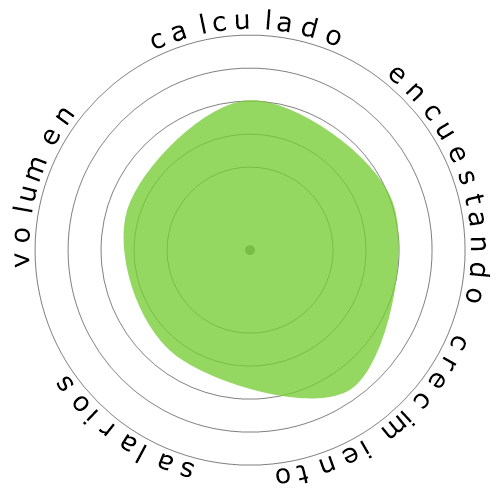Asistentes de Vuelo
¿A dónde te gustaría ir a continuación?
O, Explora Esta Profesión en Mayor Detalle...


¿Qué muestra este copo de nieve?
¿Qué es esto?
Calificamos los trabajos usando cuatro factores. Estos son:
- Probabilidad de ser automatizado
- Crecimiento laboral
- Salarios
- Volumen de posiciones disponibles
Estos son algunos puntos clave a considerar cuando se busca empleo.
Las personas también vieron
Riesgo de automatización calculado
Riesgo Bajo (21-40%): Los trabajos en este nivel tienen un riesgo limitado de automatización, ya que requieren una combinación de habilidades técnicas y centradas en el ser humano.
Más información sobre qué es esta puntuación y cómo se calcula está disponible aquí.
Encuesta de usuarios
Nuestros visitantes han votado que hay una baja probabilidad de que esta ocupación se automatice. Esta evaluación se ve respaldada por el nivel de riesgo de automatización calculado, que estima una posibilidad del 38% de automatización.
¿Cuál crees que es el riesgo de la automatización?
¿Cuál es la probabilidad de que Asistentes de Vuelo sea reemplazado por robots o inteligencia artificial en los próximos 20 años?
Sentimiento
El siguiente gráfico se muestra donde hay suficientes votos para producir datos significativos. Muestra los resultados de las encuestas de usuarios a lo largo del tiempo, proporcionando una clara indicación de las tendencias de sentimiento.
Sentimiento a lo largo del tiempo (anualmente)
Crecimiento
Se espera que el número de ofertas de trabajo para 'Flight Attendants' aumente 9,9% para 2033
Empleo total y estimaciones de vacantes laborales
Las proyecciones actualizadas se deben 09-2025.
Salarios
En 2023, el salario anual mediano para 'Flight Attendants' fue de 68.370 $, o 33 $ por hora.
'Flight Attendants' recibieron un salario 42,3% más alto que el salario medio nacional, que se situó en 48.060 $
Salarios a lo largo del tiempo
Volumen
A partir de 2023, había 126.020 personas empleadas como 'Flight Attendants' dentro de los Estados Unidos.
Esto representa alrededor del 0,08% de la fuerza laboral empleada en todo el país.
Dicho de otra manera, alrededor de 1 de cada 1 mil personas están empleadas como 'Flight Attendants'.
Descripción del trabajo
Monitorear la seguridad de la cabina del avión. Proporcionar servicios a los pasajeros de la aerolínea, explicar información de seguridad, servir alimentos y bebidas, y responder a incidentes de emergencia.
SOC Code: 53-2031.00
Comentarios (30)
Plus, robots can't do such things as CPR or use a first aid kit, for example. So, it's pretty risky.
I have witnessed a decline in the manners and decorum of the passengers traveling. Possibly, the added stress to passengers of airport safety procedures has taken a toll on their nerves. I remember when friends and family could accompany passengers to the gate. Now, the seats are packed in like sardines in a can.
Airline competition made the way for no-frills service and more passengers in smaller seats on airplanes. This has taken a toll on everyone's stress levels. Still, I see friendly FAs who are doing their best to accommodate everyone onboard and assuage those who are already frazzled by the time they take their seats.
A robot may make the dispersion of in-flight commodities easier but it can never take care of all of the emergencies that FAs are trained to handle, the medical emergencies, the duplicate and other seating problems, the myriad of human interactions that FA's handle, unaccompanied children, wheelchair passengers, interaction with cockpit and ground staff, etc., etc. the list goes on, not even considering a major emergency like a hijack incident.
You have vastly underestimated the uber-selective hiring, initial and ongoing training that FAs have. Did you know that they have to take FAA-mandated emergency testing yearly on every airplane which they are qualified to work and pass the test with a 90-100% grade. This includes physical testing in airplane simulators., first aide, resuscitation and cardio procedures etc.
If you see an FA behaving in the unprofessional manner you have described, you should write a letter to the airline about that employee.
Responder al comentario